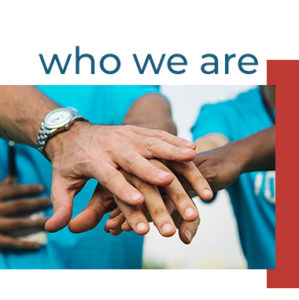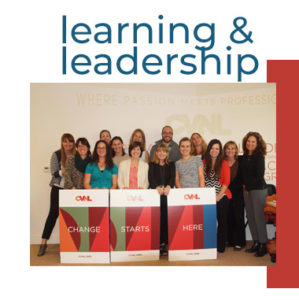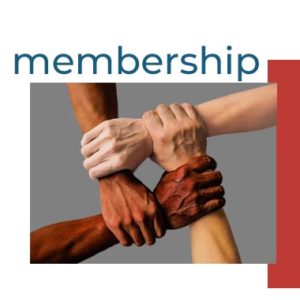A Road Map To Great Managing
If you have been in the workplace for a while, you have likely had your share of good managers and some not-so-good managers. Young professionals with fewer years of experience may not have had many managers to date, but they can certainly describe the attributes they’d like to see!
If you are lucky in your career, you have had (or have) at least one manager who has had a positive impact on your professional growth. When you think of this person, what comes to mind? When I think of my most favorite managers – and yes, I have been very fortunate – they are collaborative, great listeners, and communicate with clarity and purpose. They balance compassion and empathy, with high expectations and excellence.
DO GREAT MANAGERS COME TO THEIR TALENTS NATURALLY?
Do great managers come to their talents naturally? The simple answer is no, and having a roadmap certainly helps. While we share many traits, humans are complicated and have individual styles and needs. That makes managing people one of the most daunting challenges we face in the workplace. Most of us do not automatically know how to manage people. As I progressed in my career, I became a manager and gradually developed some confidence. It wasn’t until I gained valuable training and more experience that I learned to avoid many of the common pitfalls and amplify behaviors that contributed positively.
Rick Hanson from UC Berkeley’s Greater Good Science Center writes in his book Resilient: How to Grow an Unshakable Core of Calm, Strength and Happiness, humans have three basic needs that when met, support resilience and help us thrive in work and life: safety, satisfaction, and connection. (This also tracks with earlier work by psychologist Abraham Maslow and his motivational theory of hierarchy of needs which include safety, love/belonging.)
WHAT DO SAFETY, SATISFACTION, AND CONNECTION HAVE TO DO WITH MANAGING PEOPLE?
What do safety, satisfaction, and connection have to do with managing people? Well, frankly, everything! Meeting basic human needs is not just necessary in our personal lives; we also require these needs to be met in the workplace. Some might call this bringing your whole self to work. When you have a great manager – someone who cares and garners trust – team members tend to perform better and find more happiness at work. These managers provide a safe environment to express opinions, concerns, and creative ideas. They optimize talent by appropriately matching skills to job functions and help team members build mastery (see Daniel Pink’s Drive). They contribute to and support a culture of belonging and inclusiveness so their employees feel connected to the organization and the work.
One of the best ways to become a great manager is to raise your own awareness, challenge current beliefs, learn new practices and approaches, and engage with peers who are also learning and developing.
MANAGEMENT ESSENTIALS: A ROADMAP TO MANAGING PEOPLE
In CVNL’s new Management Essentials Series: A Roadmap to Managing People, we explore all facets of managing, including an investigation of our own styles, what we bring to the workplace, and how we are experienced by others. Knowing how we approach work can help us improve our understanding of the individual styles of the people we manage, and discover the best ways to support our employees.
Understanding the role of the manager and letting go of some myths about what managing people actually means can go a long way to enhancing our manager competence. Spoiler alert! Being a manager doesn’t mean we have all the answers.
Communication and building trust are key elements of great management. We can probably all remember a time when we received feedback that left us depleted or unmotivated. Providing feedback to employees, positive and constructive, can be an opportunity to deepen trust and understanding and motivate employees to advance to the next level of achievement and satisfaction. Asking for feedback from direct reports so we also improve is another important way to build trust in the manager-team member relationship.
Creating a team culture that is equitable, diverse, and inclusive is critical in building connection. Understanding social identities in the workplace informs how we work together. Managing with an equity lens bravely fosters a sense of belonging, supporting risk-taking and creativity, and boosting job satisfaction/happiness
Another ingredient in being a great manager is seeing your management role as an opportunity to coach and support your team members so they can achieve their goals, professionally and personally. What does coaching have to do with managing? If we can create an appreciative culture of learning within our teams, ask powerful, challenging questions, encourage a growth mindset when facing risks and mistakes, and stay curious, our team members will embrace change and be more resilient.
ARE YOU READY TO MOVE FROM BEING A GOOD MANAGER TO A GREAT ONE?
With a hat tip to Jim Collins, author of Good to Great, are you ready to move from being a good manager to being a great one? We can help… join us this Fall.
Learn More: CVNL Management Essentials Series
Free Info Session August 18, 2021, 1:00 pm – 1:45 pm, online
CVNL believes that passion alone is not enough in building strong nonprofits. We meet passion with professionalism and offer impactful learning opportunities that build leadership capacity, support organizations in making an even greater impact, and help create healthy, happy, and equitable communities.








